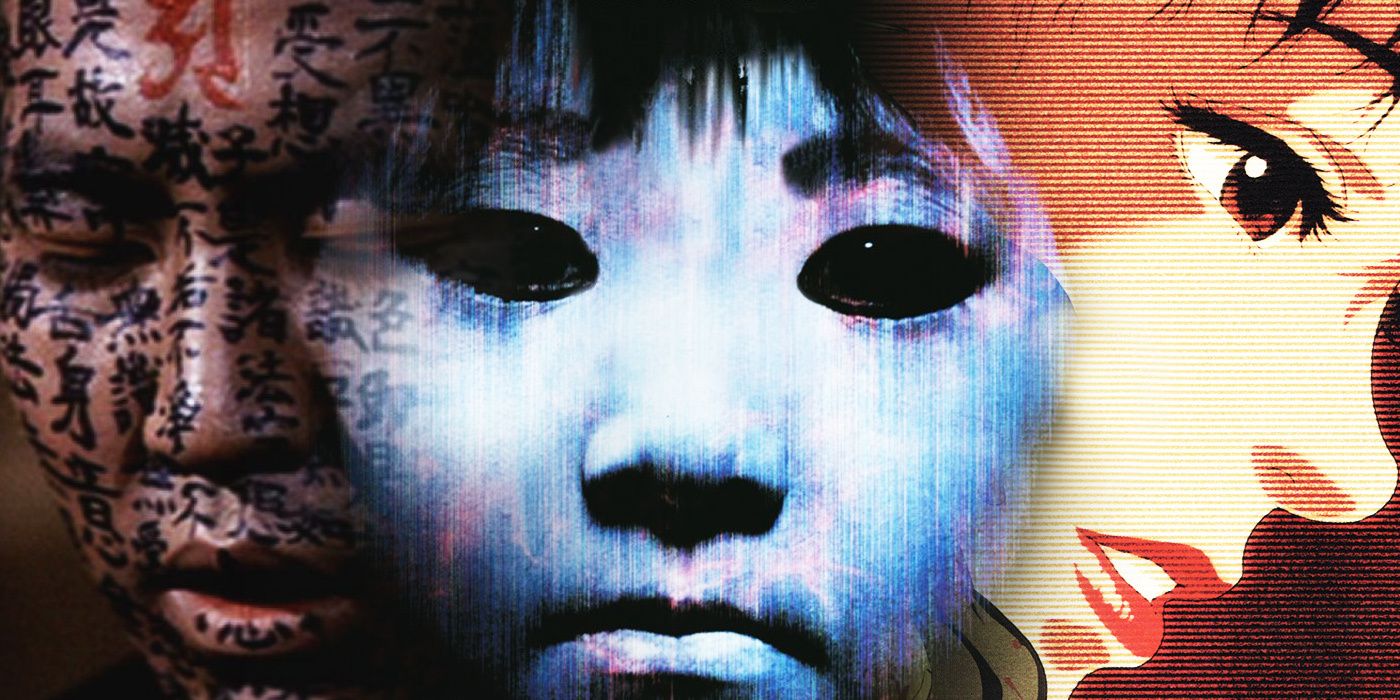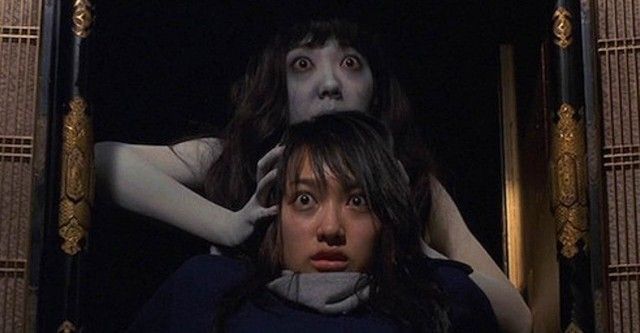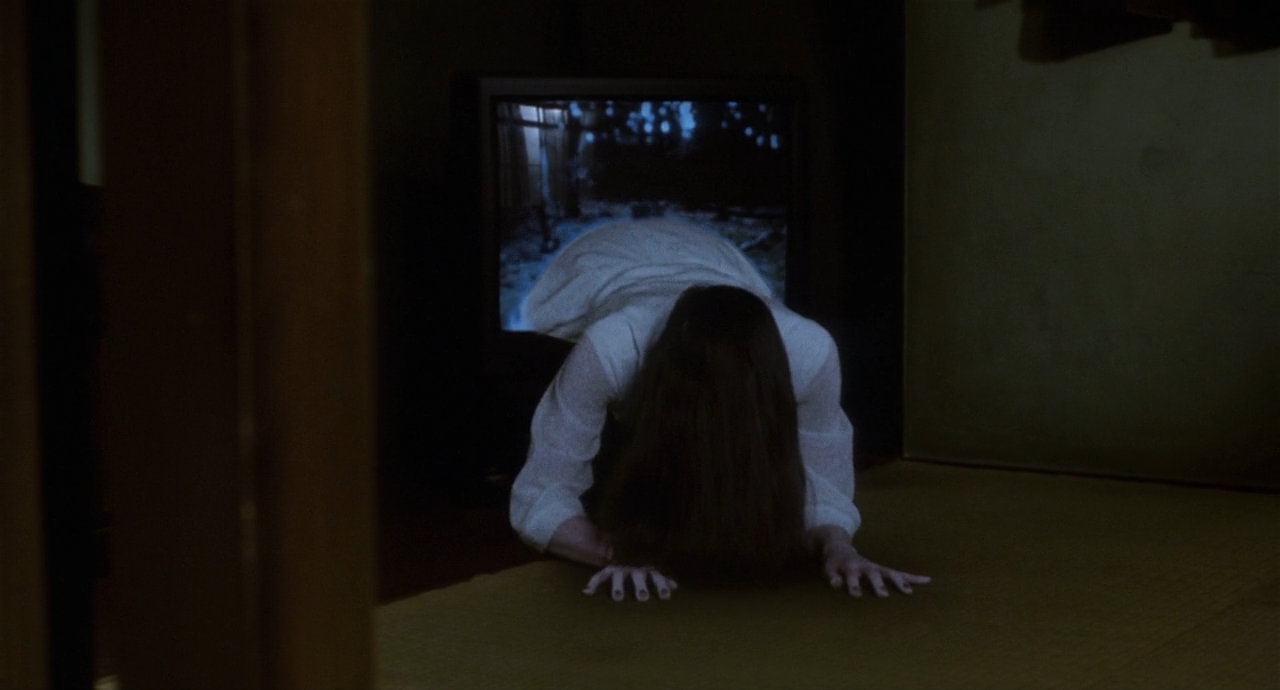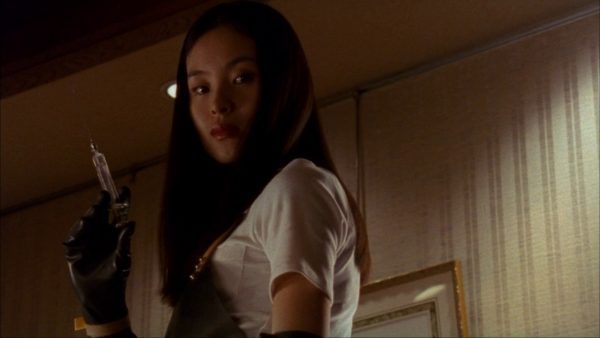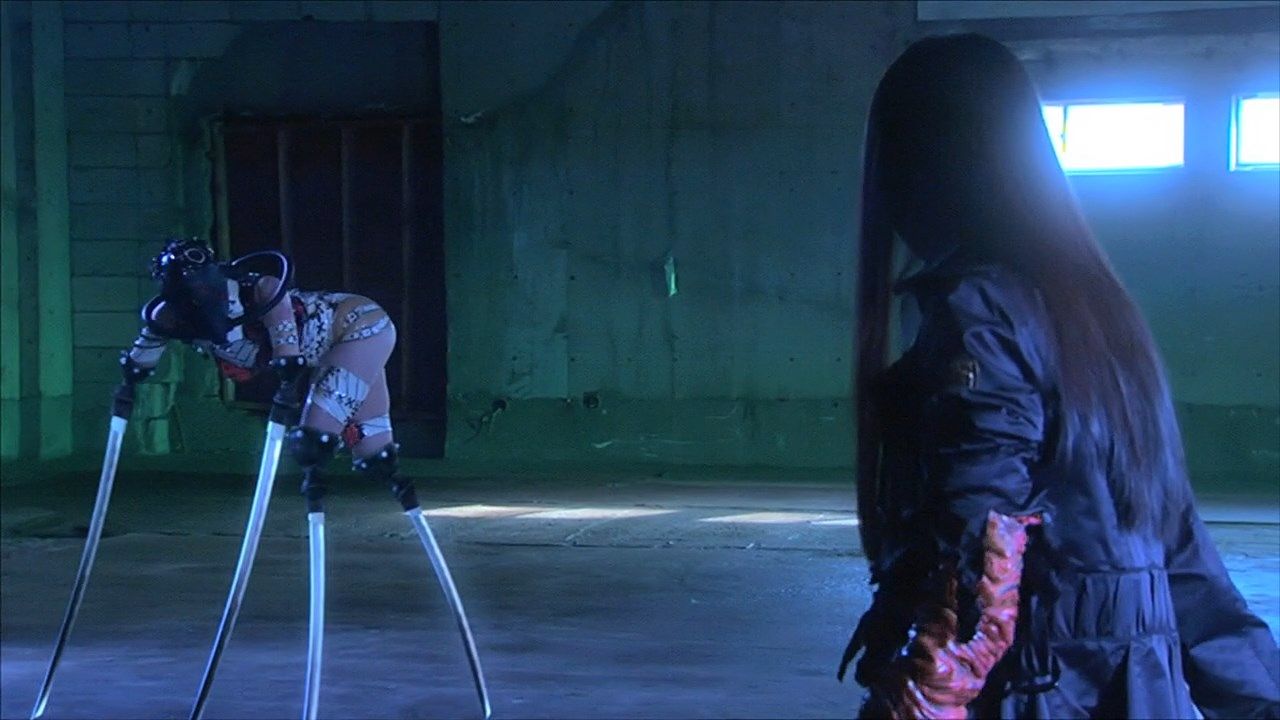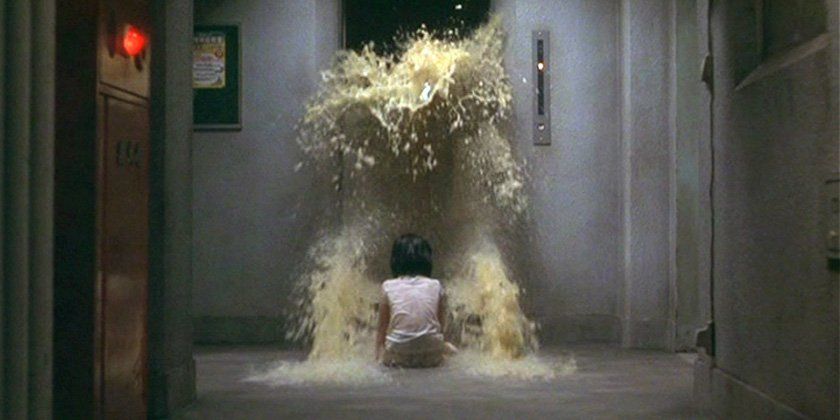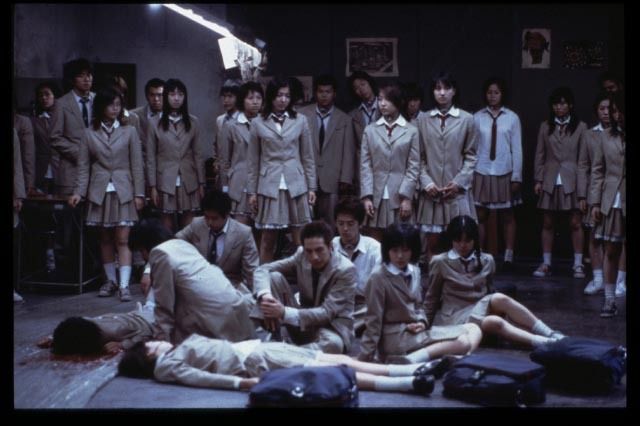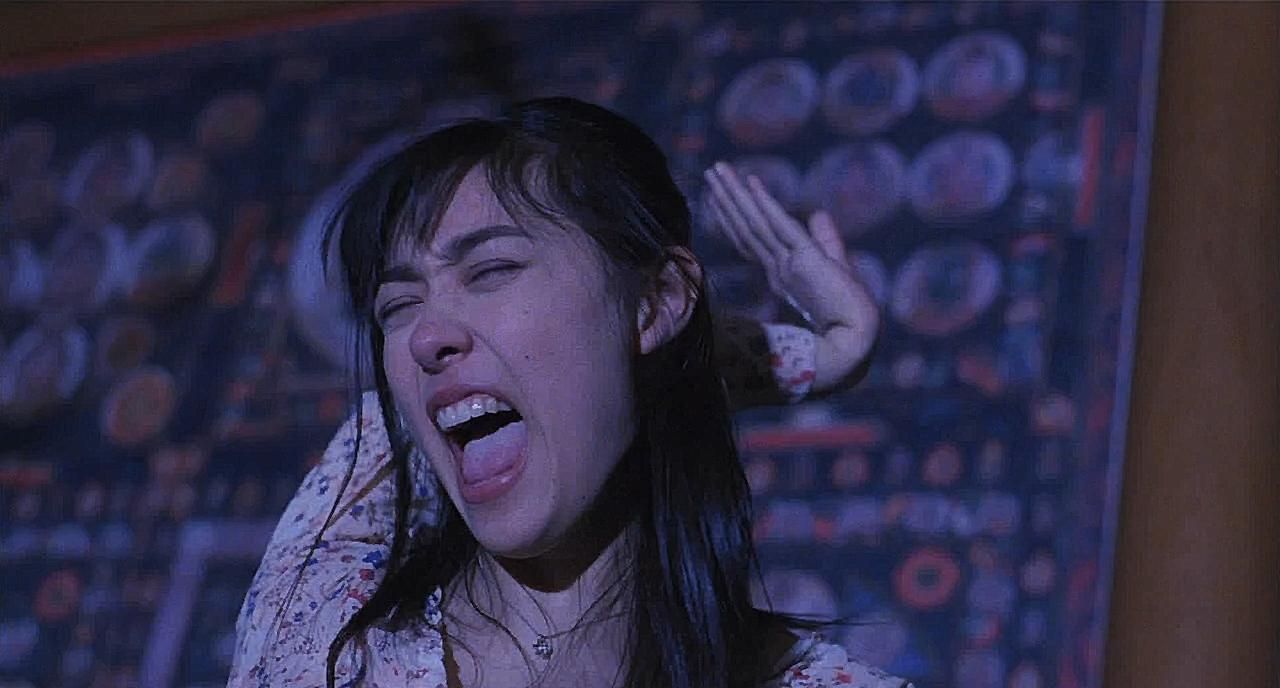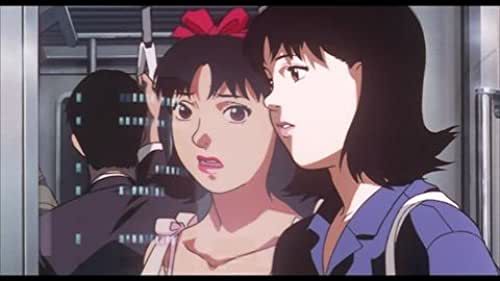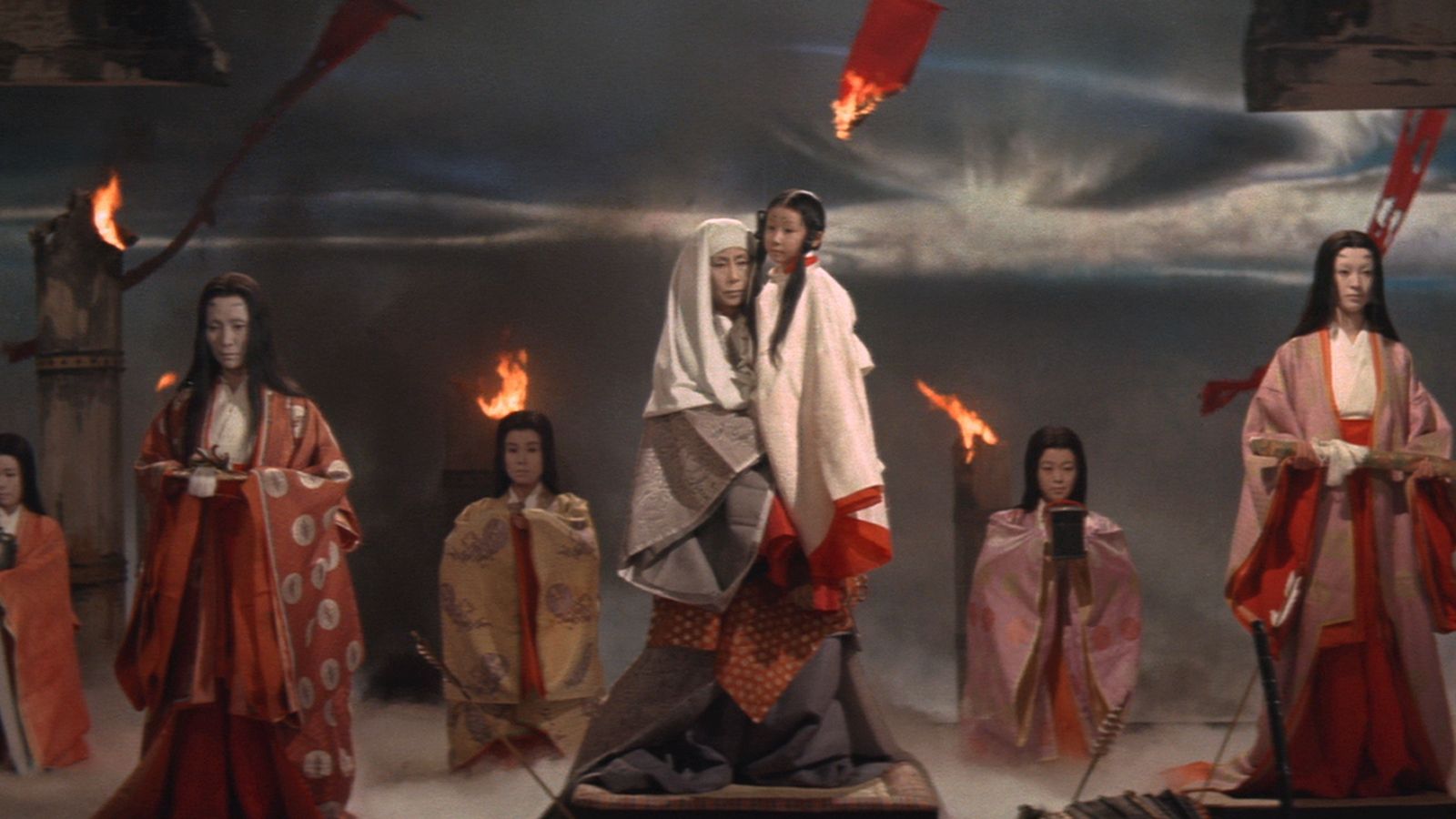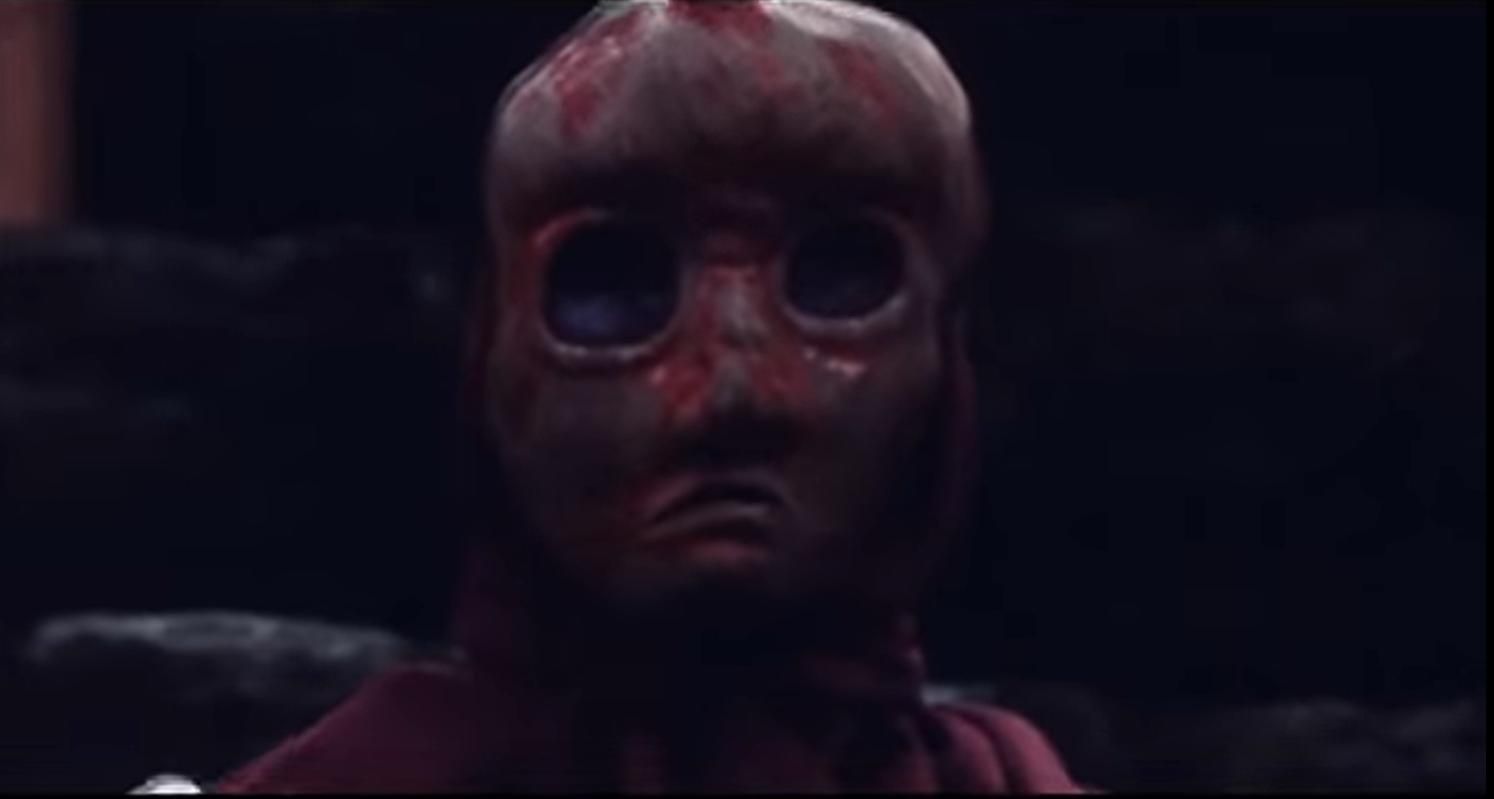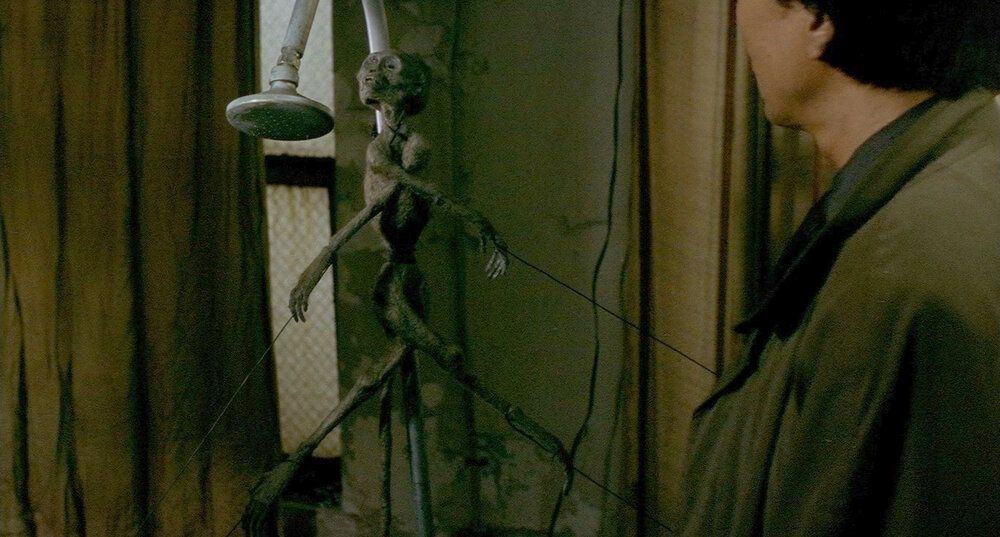It seems that Asian media’s popularity in the West has a cyclical nature; from the Kung Fu craze of the 70’s, to Hong Kong action films, and most recently - South Korean thrillers and soap operas. However, in the early 2000’s, Hollywood had a fascination with remaking Japanese horror films. From The Grudge, The Ring, and Dark Water, audiences couldn’t get enough. The source material that many of these films are based on are fantastic horror movies that have held up well, and were often incredibly prescient. Opting for slow, plotting dread in lieu of the loud jumpscares that commonly plagued Western horror, these films sought to provide a lasting terror that stuck with the viewer far after credits rolled.With the sheer availability of international films on streaming, many of these spectacular genre films are now easier to access than ever. We’ve compiled a list of the top fifteen J-horror modern classics for those new to the genre, listed in no particular order.
Ju-On: The Grudge
Easily the most recognizable film on the list, Ju-On: The Grudge in conjunction with Ringu rocketed white robed, wet black haired, Japanese women into the horror zeitgeist. At its core, the film is essentially a haunted house story, centering on a home where a horrific evil occurred long ago, and the resulting modern-day implications. After a man kills his family in a fit of rage, the spirit of his wife, son, and their cat remain tethered to the house, haunting anyone who tries to enter.
Where the 2004 American remake frequently opted for loud jumpscares and cheap effects, Ju-On: The Grudge isn’t afraid to lock the camera on the spirits of the house, often using 30+ second tracking shots to truly detail the horror of the ghosts and the fates that befell them. Ju-On: The Grudge is a terrifying, somber film whose visual and auditory cues give it immense lasting power.
Ringu
Another film that Western audiences will likely recognize, Ringu’s notorious framing device, a cursed videotape that kills it’s viewer seven days later is a unique and endlessly tense narrative tool that instantly puts the movie on a timer. When a reporter (Nanako Matsushima) begins investigating rumors of a supernatural videotape with her son (Rikiya Otaka) and ex-husband (Hiroyuki Sanada), the root of the legend takes them to a dark and tragic event from the past.
The film plays with the idea of vengeful ghosts, positing that hatred and anger are such powerful emotions that they can echo long past when someone has died. What makes Ringu so horrifying is the concept that a movie could have so much power over the lives of its victims, and the creeping suspicion that the very fate is currently happening to you. The lasting imagery of Sadako (Rie Ino) crawling out of a television set is forever cemented into pop culture relevance, and is just as scary two decades after the film was released.
Pulse
One of the things that makes horror such an effective genre is the ways in which it offers stylized critiques of modern society. In George A. Romero’s Dawn of the Dead, we quickly understand the allegory of mindless zombies flocking to the mall as they did in life as a criticism of modern consumerism. In 2001, the internet and computers were a relatively new technology. While many movies of the time sought to explore the positive possibilities of technological advancement, Pulse (or Kairo in Japan) showcases a darker, spirit-riddled reality.
Labeled as “techno-horror,” the film subverts the aesthetic that often accompanies movies about technology, substituting a dark, damp, concrete realism in place of shiny electronics. A profound film, it posits that in the age of technology there still remains an inherent loneliness in modern society. Exceedingly dark and misanthropic, Pulse highlights the dread in everyday life.
Audition
Director Takashi Miike is a J-horror legend, and his 1999 horror thriller Audition helped cement him as a mainstay of the genre. Aoyama (Ryo Ishibashi), a middle aged widower enlists the help of a movie producer friend (Jun Kunimura) to put out a casting call for a movie that is actually a ruse to find him a new girlfriend. In so doing he ensures that those responding to the advertisement will all be attractive women far younger than himself. A beautiful but shy woman named Asami (Eihi Shiina) catches his eye, and the two begin their romance. What ensues is anything but a predictable love story.
The film explores the trappings of men’s fixation on young women, and the inherent shallowness in trying to love someone you barely know based only on surface-level attraction. It also challenges the inherent power dynamic between wealthy men and their peers who abuse their position for personal gain. A twisted cat and mouse thriller that subverts the position of predator and prey, Audition is truly a singular experience.
Tokyo Gore Police
School girls with mutated knife arms? Check. A woman with alligator jaws in place of her lower torso? Check. Gimp suit samurai sword appendage monster? Check.
For many, Japanese media can be narrowly defined as bombastic, colorful, and nonsensical; and while it’s a narrow, incorrect observation, those elements are certainly in no short supply. Tokyo Gore Police is incredibly surreal, alternating between silly and gag-inducing. The film focuses on a task force of special operations Tokyo police officers and their battles with genetically mutated monsters. Ruka (Eihi Shiina) is an outcast who is enlisted by the police to help dispatch the creatures, dubbed engineers.
The previous two sentences are all you ever need to know about this movie to get maximum enjoyment. Story and plot are secondary to impressive gross-out practical effects and goofy, blood spattered fight sequences. It’s flashy, crass, and endlessly weird in a way that is delightfully endearing and campy. It’s existence also speaks to the diversity of the J-horror genre and the auteurs that create it, who are just as comfortable terrifying audiences with slow one-takes of a bloodied ghost descending a staircase as indulging in zany kills.
Dark Water
2002’s Dark Water is a beautiful, bittersweet drama about the relationship between a mother and her young daughter - also, their apartment is constantly leaking from the floor above and may or may not be haunted. Protagonist Yoshimi (Hitomi Kuroki) moves herself and daughter Ikuko (Rio Kanno) into a small, run-down apartment amidst her divorce from Ikuko’s father (Fumiyo Kohinata). Much of the film is spent exploring Yoshimi’s attempts to acclimate to life as a single mother, humbling herself and working a job proofreading that pays far less than her previous jobs to provide for the new family structure.
It’s no surprise that the visual imagery of a young girl sulking around an apartment complex is creepy, but Dark Water’s lasting effect is how ominous it paints life as a single, working mother in a society so averse to the concept. The sacrifices Yoshimi makes for her daughter and the bond they share are approached in an incredibly mature way, with Ikuko coming to increasingly appreciate those sacrifices as she grows. The scares on tap are consistent, but the lasting impression of the film is the fragility and humanity in the work it takes to raise a child against the odds.
Battle Royale
Where and when did the battle royale genre start? Modern audiences are quick to think of intellectual properties such as Fortnite, Apex Legends, and The Hunger Games; but all of those projects inevitably owe a great deal to the 2000 film, Battle Royale. The movie takes place in a world where the Japanese government has instituted the BR act, a program created to limit juvenile delinquency. A group of middle school students are drugged, transported to a remote island, and each given a bag with a weapon that they must use to fight for their lives against their classmates. By the end of the game, only one student can be left alive.
Many common themes from Japanese cinema are present here, from government ineptitude at solving problems to the unrelenting cruelty of Japanese youth. With Quentin Tarantino proclaiming it to be his “favorite movie of all time”, Battle Royale succeeds in a now crowded genre due to its heartbreaking setup. With many students portrayed as close friends in the beginning of the movie, the children must quickly decide if the lives of their classmates are worth losing their own over. It’s a numbing exploration of the cruelty of man, and the extent of our fighting spirit and ability to empathize and band together under horrific circumstances.
One Cut of the Dead
One Cut of the Dead is a film told in three distinct acts, and is near impossible to discuss without spoiling the sensitive narrative twists. The movie focuses on a director (Hamatsu Takayuki) who is known for being able to produce high quality work on a small budget and tight production timelines. There’s also zombies. Centering on a low budget skeleton crew trying to make a zombie movie, the film easily gives Shaun of the Dead a run for its money for the title of funniest zombie movie.
It isn’t treading new ground to point out that zombie movies often claim that the true monsters aren’t the undead, but some larger institution. One Cut of the Dead posits that the real monsters among us are production studio executives with little to no knowledge of the amount of effort that goes into making movies. An ode to the love of film and the process by which movies are made, One Cut of the Dead is a hilarious, heartwarming examination of genre movies.
One Missed Call
One Missed Call is yet another J-horror film to receive an American remake, and represented the tail end of Hollywood’s stint remaking Japanese horror films. Directed by Takashi Miike, the film blends the themes of modern technology and curses. Similar to Ringu, One Missed Call revolves around a premise of impending doom - with our characters receiving voicemails of their final words before they die. Narratively, the film follows many of the beats established in the genre, but where the film gains its greatest value is in the unnerving nature of its toll-free deaths.
In Ringu, victims of the videotape are allowed free will to choose to watch the tape that results in their death. One Missed Call’s premise feels entirely random, with victims receiving a phone call from their own phone number seemingly at random. Audiences can escape the real world terror of Ringu by just not watching an unlabeled VHS tape; easy enough right? Good luck not flinching at every phone call you get after watching One Missed Call, because if the film has anything to say about it, it may be your last!
Perfect Blue
The only anime title on the list, Perfect Blue is a frightening exploration of burnout, idol culture, and the perils of being a young woman in modern society. For the uninitiated, many East Asian countries have established a pop culture following male and (more notoriously) female pop groups, whose members are called idols. Placed under immense pressure to produce new music, learn new dance sequences, and maintain microscopic weights, it’s an industry widely regarded as unsustainable for its members.
Perfect Blue centers on Mima Kirigoe (Junko Iwao), a young idol who attempts a career pivot from her idol group to acting. With mounting pressure on her to succeed in a new industry, a website detailing her every action throughout the day, and a spirit embodiment of her past self continuously taunting her, the audience is begged the question of what is real and what is a figment of Mima’s stress-induced nightmares. Directed by the late Satoshi Kon, who often utilized animation to intertwine surrealist horror with depictions of mundane Japanese life, the terror of this film perfectly encapsulates what horror does best: turning the mirror on the audience and forcing them to explore the ways they are complicit in the terrors of modern society.
Tag
Sion Sono is a polarizing figure, building his brand around consistently producing colorful, peculiar horror films. His most recent film: Prisoners of the Ghostland, is a Japanese western starring Nicolas Cage as a bank robber and Sofia Boutella as they embark on a journey across a post-apocalyptic Japanese wasteland. The most recent film on this list, Tag follows a quiet high-school girl named Mitsuko (Reina Triendl) who’s on the run and is followed by violence at every step. Further elaboration on the plot is both difficult to condense and would spoil the experience of this gory romp with a surprising amount to say.
Hollywood’s fixation on final girls and the poor writing of female characters in horror isn’t a theme that’s unique to the United States. Japanese schoolgirls are often dismissed as interchangeable, and are treated more so as dolls to be toyed with as opposed to actual people; ultimately having little value outside of the enjoyment that audience members derive from watching them be tormented on screen. Tag examines this portrayal, and is often quite literal in it’s assertions. Like most of Sion Sono’s filmography, Tag is a gruesome, surreal experience that shouldn’t be missed.
Kwaidan
Kwaidan (translated literally as “Ghost Story”) is a horror anthology film based on Japanese folktales. Told in four stories, each vignette intertwines characters from Japanese folklore with parable-like lessons, with many characters having to suffer exaggerated consequences for their actions. The characters of Ju-On: The Grudge and Perfect Blue are hapless victims, and the events that transpire in their lives are unfortunate constants that are both unwilling and unavoidable. Inversely, Kwaidan gleefully shows its age in this regard, as each short story is an examination of personal choice and human resolve.
The oldest film on this list, it has received its fair share of positive critical reception, receiving an Oscar nomination for Best Foreign Film, a nomination for the Palme d’Or at Cannes, and induction into the Criterion Collection. Additionally, it’s the only film on the list to not take place in modern day, an important distinction that makes it required viewing for genre newbies. While it’s certainly interesting to witness spiteful ghosts wreak havoc on modern day citizens, there’s an appreciation that comes from witnessing folklore in its native time setting.
Noroi: The Curse
Noroi: The Curse is a found footage “documentary” film that opens with the warning that the ensuing film is “too disturbing for public viewing”. Shortly after, we’re informed that the documentary director’s (Jin Muraki) home burned down, leaving his wife (Miyako Hanai) dead and the documentarian’s whereabouts uncertain. The rest of the film is told through the director's tapes as he investigated supernatural events.
None of that setup is particularly intriguing, and Western horror fans are likely rolling their eyes at what they think will be a formulaic found footage slog. Found footage films often follow a basic structure: introducing the characters, establishing a reason for recording, and then following the traditional three act horror structure. Noroi: The Curse scoffs at those lesser films, structurally emulating how it would really feel like to comb through supernatural videos from a missing documentarian. This structure, coupled with the aversion to jump scares and immersion-breaking tropes creates an incredibly tense atmosphere that very few found footage films have accomplished.
Cure
Cure centers on a detective (Koji Yakusho) and a psychologist (Tsuyoshi Ujiki) investigating a string of murders whose victims have the letter X inscribed on their necks. None of the perpetrators have sufficient motives, and all seemingly have no recollection of committing the crime. Hypnotism and mind control quickly come into play, and the ensuing drama is devastating and horrific.
There are few accolades higher than a shout-out from an Oscar-winning director, which Cure has attained, with Parasite director Bong Joon Ho stating that the film was one of the most influential to his own career. The connective tissue between Cure and and Ho’s Memories of Murder is instantly recognizable, with both stories centering on two detectives following the trail of an elusive serial killer.
While many of the horrors explored in other films on the list are visually striking, viewers can take solace knowing that the supernatural events depicted are works of fiction. Wrapping the story of Cure in an investigative police drama gives credence to the possibility of the murders, making them feel all the more realistic and daunting.
Confessions
Confessions, much like Dark Water, is a story about the love between a woman and her young daughter. Yuko (Takako Matsu), a junior high school teacher with a particularly difficult class, often brings her four year old daughter Manami (Mana Ashida) to work with her. On one fatal day, Manami’s dead body is discovered floating in the school’s pool. Due to Japan’s legal workings, crimes committed by any person under the age of fourteen are not punishable by law. Yuko, convinced that two students, who she dubs Student A and Student B, are responsible for her daughter’s death, calmly begins to interrogate and exact her revenge.
There’s an argument to be made that stories of vengeance are emblematic of a society that feels unsatisfied with the quality of their legal system. Yuko’s vigilante justice against the students she thinks were responsible for her daughter's death is cathartic, and in her eyes, justified given the fact that the murderers would escape free of consequence of their actions. In a movie that depicts every parent's worst nightmare, Confessions explores the twisted lengths a grieving parent is willing to go to find their personal justice.

